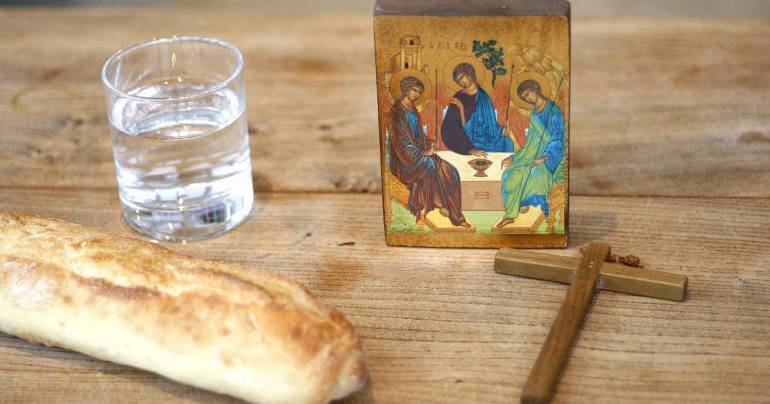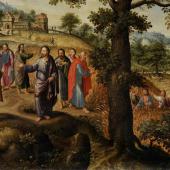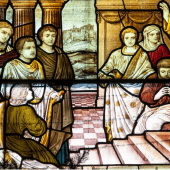Our lifestyle should reflect our worship!

February 16, Friday after Ash Wednesday
Memory of St. Onesimus.
Daily Readings: Isaiah 58:1–9a, Matthew 9:14–15
Fasting is one of the basic tenets of the Lenten Season. The people of Israel observed two types of fasting. There were two Major Fasts (from evening to evening) and four Minor Fasts (from sunrise to sundown). The best of the fasting was done on Yom Kippur or the Day of Atonement. Fasting has religious as well as physical implications. But what we notice in this text is a certain amount of frustration oozing out both on the part of the people of Israel and their God. God says that His people rebel and commit sins. At the same time, they also seek Him and delight in knowing His ways, as if they were a righteous nation. They complain to God as to why He does not take note of their fast.
The real issue here is that both good and bad go hand in hand. The people who display so much religiosity in their worship fail to demonstrate the same impact on their lifestyle. Fasting and fighting cannot go together. A real fast is concerned about feeding the hungry, freeing the oppressed, and housing the homeless. It is then that the Lord God will answer our prayers promptly. The Psalmist expresses this sentiment so aptly in the responsorial Psalm: “A heart contrite and humble, O God, you will not spurn.”
The issue of fasting comes up again in the time of Jesus. The disciples of John question Jesus as to why they and the disciples of the Pharisees fast, but the disciples of Jesus do not. Fasting for the sake of fasting is of no use. It is an empty practice. It is an exercise of self-control. It has to purify the body and the heart. It could also be a sign of mourning.
Most significantly, it should make a person express an inner hunger for God and, in the context of Jesus’ presence in their midst, a real hunger for Christ, the Bridegroom. Jesus uses a mini-parable to teach them a lesson. He is the Bridegroom. As long as he is in their midst, his disciples need not fast. When he returns to the Father, then they will have to fast.
Holy Mother Church honors the memory of St. Onesimus, a pagan slave of Philemon who received faith when he took refuge in St. Paul. He enjoyed a martyr’s death for his faith in Jesus.
Call to Action for Catholic Living: Jesus reveals the mercy of God. We who practice fasting have to become more compassionate towards the less privileged brethren in our midst. Unless the food that we save from our fasting reaches someone who has no food, we will not be able to reap its spiritual benefits. One can also become generous in words and deeds. Am I able to realize that?
Radio Veritas Asia (RVA), a media platform of the Catholic Church, aims to share Christ. RVA started in 1969 as a continental Catholic radio station to serve Asian countries in their respective local language, thus earning the tag “the Voice of Asian Christianity.” Responding to the emerging context, RVA embraced media platforms to connect with the global Asian audience via its 21 language websites and various social media platforms.














